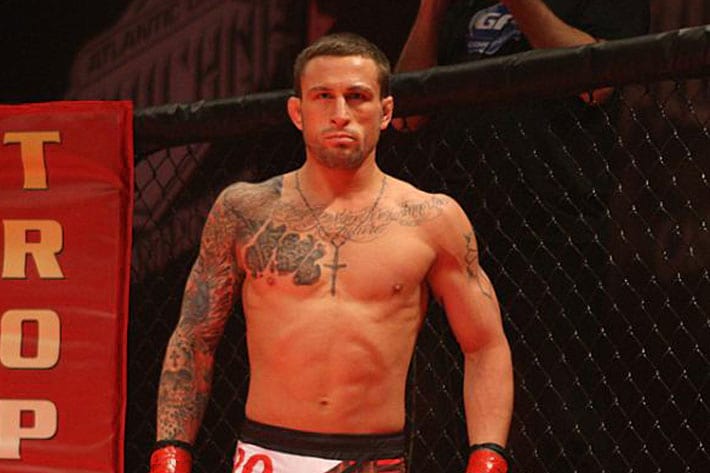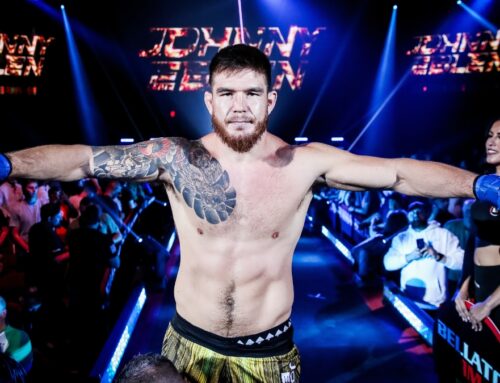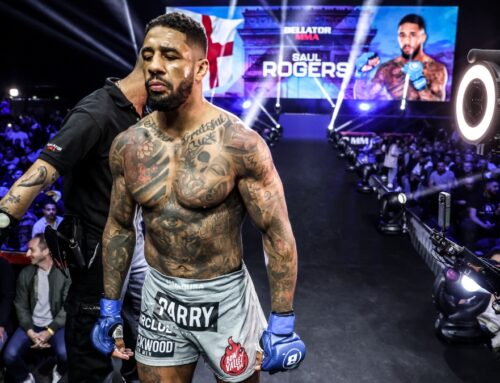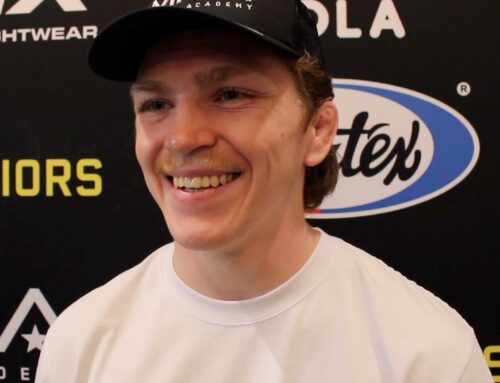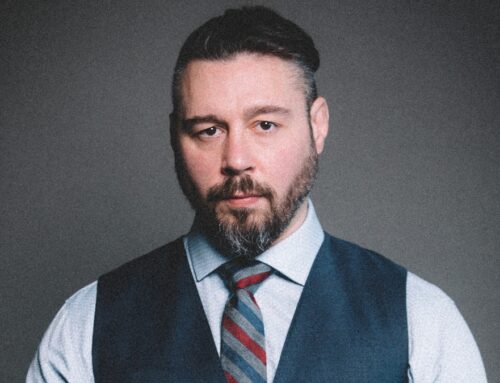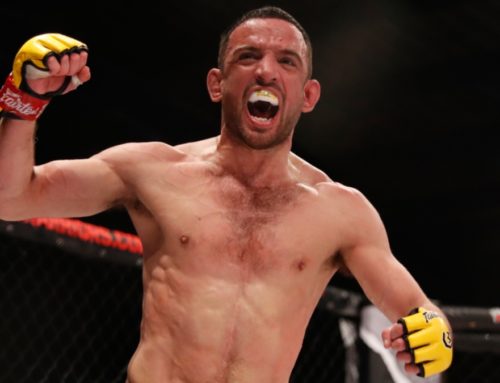Former NCAA Division I national wrestling champion and undefeated MMA prospect Gregor Gillespie is set to face his next challenge inside the cage on January 23rd at Ring of Combat (ROC) 50.
As Gillespie explained in an lengthy exclusive interview, he is a life-long athletic competitor.
“My dad got me into wrestling when I was about four or five years old,” Gregor told Fighters Only’s Aundre Jacobs. “He was a junior college All-American and he got me and my brother started when we were really young, and coached us all the way up through high school.”
Long-time UFC viewers will be familiar with commentator and general combat sports expert Joe Rogan often mentioning how the tough grind of amateur wrestling is excellent for preparing young fighters for the physical and mental pressures of MMA.
Gregor agrees with Rogan’s sentiment… to a certain extent.
“I think wrestling contributes a lot to fighting now, with the solid base. But physical and mental toughness, I don’t want to say that you get that from just high school wrestling. I think you have to be involved in the top Division I wrestling program in college to get that experience.
“I’m not saying fighting is easy but it’s certainly easier than Division I college wrestling, and here’s why – you have to make weight twice a week. So, if I wrestle at 157[lb] I have to make it at least twice a week; sometimes three times a week. You have to wrestle one hour after you weigh-in. So you have to suck a whole lot of weight then you only have one hour to replenish. It’s really, really tough.
“On top of that you have two hour-and-a-half to two-hour practices every day and class in-between. So you can’t go home and nap and eat and everything. It’s tough. The you have to travel. You’re travelling at least once a week, sometimes twice a week, across the country and back then playing catch-up in your classes while trying to make weight. And you’re in a room full of guys that are trying to rip your head off every day.
“I think doing that for four or five years, that’s a tough, tough experience. I think the way I live and train now is hard, but not like that. I have to make weight every three or four months.”
Once his collegiate wrestling days were over, Gillespie continued his amateur wrestling career internationally while also taking up a coaching position at Hofstra University in Long Island, New York. As his coaching job took up much of his time, Gregor went looking for somewhere he could focus on developing his own skills and ended up at Bellmore Kickboxing MMA.
As he recounted to FO, Gregor was one day invited to do some MMA sparring with some of the other guys at the gym and said, “Sure, I’ll try it out.” Almost immediately after his first full-on MMA training experience, the New Yorker remembers saying to himself, “This is really fun, I should pursue this.”
Though he was still very much involved with wrestling, it was around that time that Gregor reached a crossroads. Admirably, the 2007 NCAA wrestling champ has no shame in admitting there was one fellow high-achieving competitor in his sport who edged him away from wrestling and towards MMA.
“I was still competitively wrestling at that point, I was on the Olympic ladder,” he recalled. “I just had to make a decision – do I want to continue wrestling or do I want to maybe venture into this MMA thing? I’ll tell you right now, one of the contributing factors for me choosing to fight rather than pursue the Olympic dream was Jordan Burroughs being in my weight class. Jordan Burroughs is an Olympic champ, he’s a world champ, he’s only lost one match internationally in four years.
“If you don’t win the world team trials or the Olympic trials, you don’t go [to the Olympics]. You might be second [best] in the world but you don’t get to go because you’re behind Jordan Burroughs. So he’s a big reason I didn’t continue to wrestle.”
“I liked MMA, it was something new,” Gregor continued. “I’d already kind of plateaued, I think, in wrestling and I had a lot to learn in MMA. I’m obviously continuing to learn a lot still. I’m very green to this sport… I love the sport and I think part of the reason is because I have so much to learn.”
Gillespie is currently 3-0 in pro MMA, having earned three first-round stoppage wins (one TKO, two submissions) in ROC. He most recently defeated Justin Harrington via arm triangle choke last September.
Assuming he can keep his hot streak alive, Gregor is positive about his prospect of one day advancing to the major leagues of the sport.
“That’s kind of a perk, it being kind of a minor league for the UFC,” he said of competing under the ROC banner. “I think it has more guys than anybody that have moved on to the UFC, including guys like Chris Weidman, Frankie Edgar, Uriah Hall, Costas Philippou – the list goes on…
“But the reason I think I got into it is because my head coach, Keith Trimble, at Bellmore Kickboxing has a really good rapport, relationship and history with (ROC president) Lou Neglia.”
He added: “And the other thing is it’s in Atlantic City, it’s only two hours away from where I’m at. It’s nice if I have people here than want to go watch. It works out nicely that they don’t have to go to California.”
His gym may not be the biggest or most prestigious in the MMA community but, at Bellmore Kickboxing MMA, Gregor still has a considerable number of elite-level training partners to help sharpen his skills including UFC fighters Dennis Bermudez, Ryan LaFlare and Costas Philippou.
Gillespie faces pro MMA newcomer Justin Stewart in his next bout at ROC 50 and, as he has been heading into all three of his previous contests, he is single-minded in his approach.
“As far as my opponents go, and this doesn’t just go for this opponent, this goes for all my past opponents and all my future opponents… I don’t know much about them and I don’t care to, to be honest. I’m not trying to sounds ignorant but I need to worry about what I do best.”
ROC 50 is set to take place on Friday January 23rd at the Tropicana Casino & Resort in Atlantic City, New Jersey.

